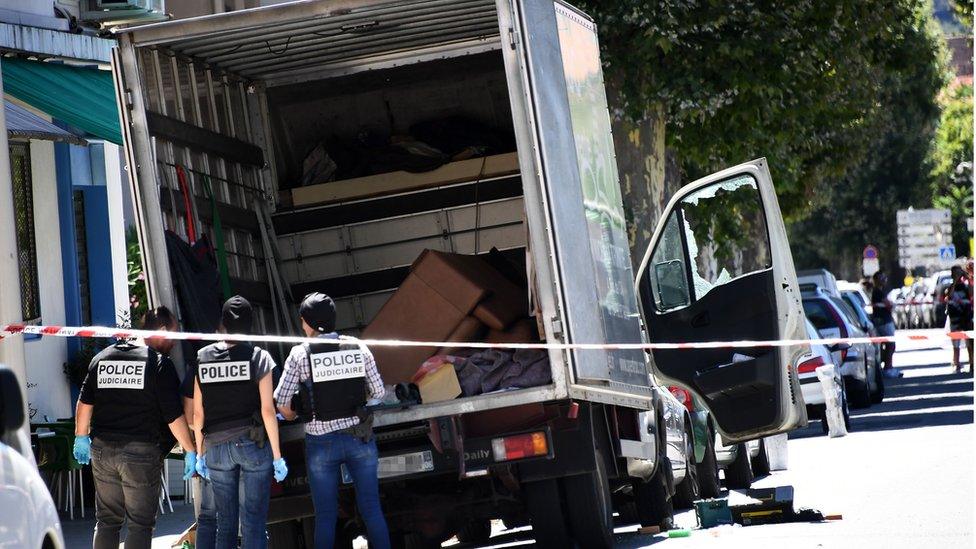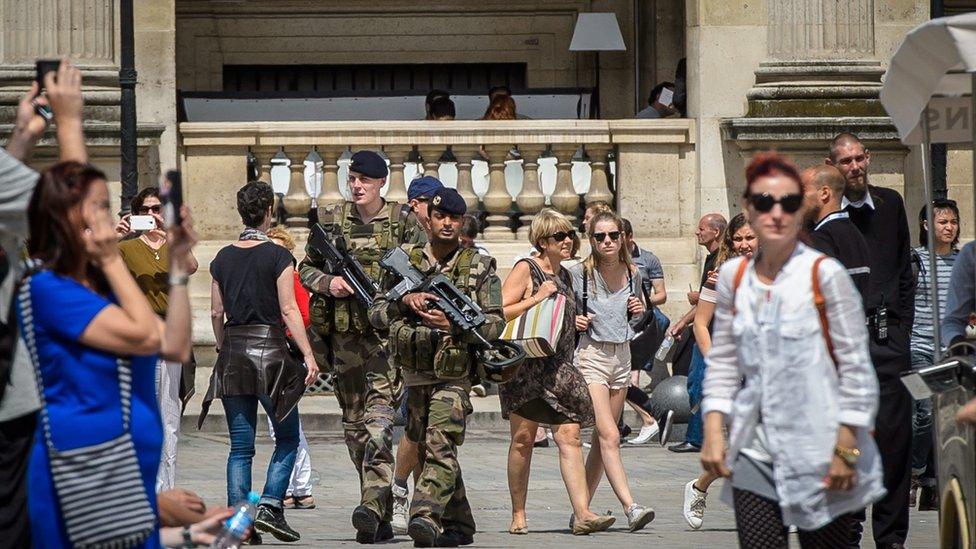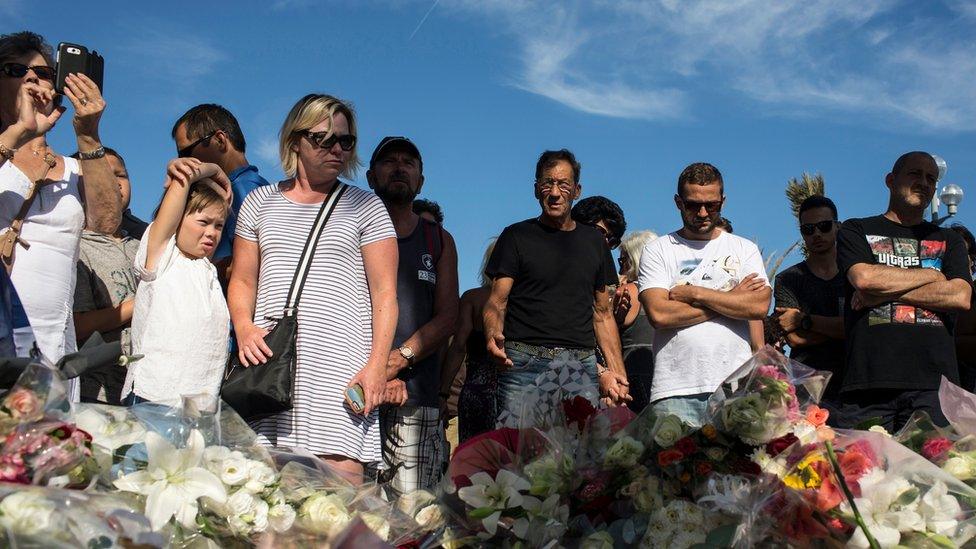Nice attack: Why France is struggling to cope with the terror threat
- Published

Police check a lorry parked near the flat of the Nice attacker, who was totally unknown to security services before he killed 84 people on Thursday night
Once again France must contemplate an attack on its people, but what was the motivation and why was it not stopped?
This country has lived under a state of emergency since November's attacks in Paris.
The president announced, just a few hours before the attack in Nice, that the state of emergency would end soon. It will now be extended for another three months.
That means police and soldiers on the streets, guarding key buildings. It means scanners and metal arches at some shops and regular bag searches.
Security reserves have been called up in support. There are already tighter checks at France's borders as neighbouring countries increase their threat levels.
Security services have denied they relaxed after the Euro 2016 football tournament passed off without incident.
There has been praise for the relentless job they have done in recent months and for the speed of their reaction in Nice.

French soldiers will continue to patrol the centre of Paris and other cities, after the state of emergency in France was extended by three months
Security issues raised
Intelligence gathering has become better. More information is being shared with and from other countries. Predicting and preventing every attack is impossible - especially the 'lone wolf' radical with no track record.
But there are now questions about security services that have not matched the success of their counterparts, for example in the UK.
Earlier this month, a report detailed French security failures that allowed last year's attacks.
There are in total six intelligence services across the Gendarme, the National Police and local security forces - agencies competing rather than co-operating with each other.
Who should track criminals with terrorist sympathies? What happens when they move around this country or transfer to others? Who should foreign intelligence services share their information with?
That confusion allowed the terrorists to carry out their attacks unhindered.
The report was clear that simply putting more police officers and soldiers on the streets was not the answer.
The fact that another attack has happened would seem to prove that.

French people are being warned they will have to live with terrorism for a long time to come
Age of insecurity
Immigration has a long history here, integration does not.
There are large populations from France's former colonies, places like Tunisia.
Some feel their religious beliefs are trampled by a secularism that is fiercely guarded. Some see little hope in a nation which denies them a chance of success.
The forgotten suburbs that house large numbers of immigrants have erupted into protest and violence in previous years.
They are policed by tough units that fail to reflect the communities they control. It is an unhappy mix that can open the way for a minority to be radicalised and moved to violent action.
So what should be the way ahead now? What is the right response from the politicians and police chiefs?
The French people are being warned they are going to have to live with terrorism for a long time to come.
'Liberte' - freedom - is one of France's founding principles. It was being celebrated as part of Bastille Day when the lorry drove into the crowds on Nice's waterfront.
Now it is under threat and must be redefined to meet the challenge of an age of insecurity.